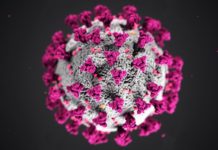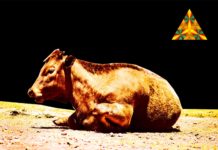A covert investigation inside the Golden Triangle Special Economic Zone in Laos has discovered a horrifying fact: you’ll have no problem finding several restaurants and other local businesses offering endangered animals like tigers and bears on their menu and sales floors.
Among other items, the study found tiger meat and bear paws being offered for meals for rich Chinese tourists who come to Laos, as well as other endangered species like monitor lizards, pangolins, geckos, snakes and turtles. The study showed that these items and more were being bought by rich tourists who come to the Golden Triangle Special Economic Zone to gamble, shop and eat.
The Golden Triangle Special Economic Zone is an enormous resort town run by Hong Kong-based Kings Romans Group that caters to Chinese tourists. It consists of a luxury casino, along with over 70 businesses and sadly, part of that business is an active trade in endangered animal parts, according to a report conducted by the Environment Investigation Agency.
Some of the findings include live endangered bears and other creatures in cages waiting their fate to be eaten at the God of Fortune restaurant there, as well as a large aquarium at the Fantasy Garrett restaurant featuring a tiger skeleton to advertise their tiger wine, which is made with crushed tiger bones and rice wine.
In fact, investigators with both the Environment Investigation Agency and the Education for Nature Vietnam discovered a tiger and Asian bear farm in the zone where the animals were being bred for the purposes of slaughter for restaurants and other locations.
Inside businesses in the Zone the investigators also found items such as tiger skins, rhino horn, helmeted Hornbill carvings, and a leopard skin, all from endangered species of animals and birds, along with ivory made into all sorts of jewelry and trinkets.
The Golden Triangle zone is in Southwest Asia and includes parts of Laos, Thailand and Burma. It is also a tax free zone. It is known for other illegal functions such as opium and heroin production by drug lords, but still, it is also seen as a place that draws rich tourists, mostly from China, since it is only a two hour drive from there.
A 2007 law in Laos called the Wildlife and Aquatic Law forbids using endangered animals in these kinds of situations, but the businesses have found a loophole, according to officials. The law allows them to use captive bred animals that are second generation, but these animals are supposed to also be registered with the Laos government and the undercover investigators say this is not always being done.
This 2007 law also states that government employees can’t run a wildlife business or profit from any, however, sources also report that the Laos government has a 20 percent stake in the Golden Triangle Special Economic Zone.
Officials say that even though by law, authorities could go into the zone and make arrests, seize the illegal items and prosecute the offenders that it isn’t likely to happen anytime in the near future. This is because it is seen as a huge challenge to do it based on the area’s political connection, says investigators.
According to investigators, any future action has to come from the top, such as a message from the prime minister and the establishment of a special task force, along with stronger laws in wildlife crime.

















